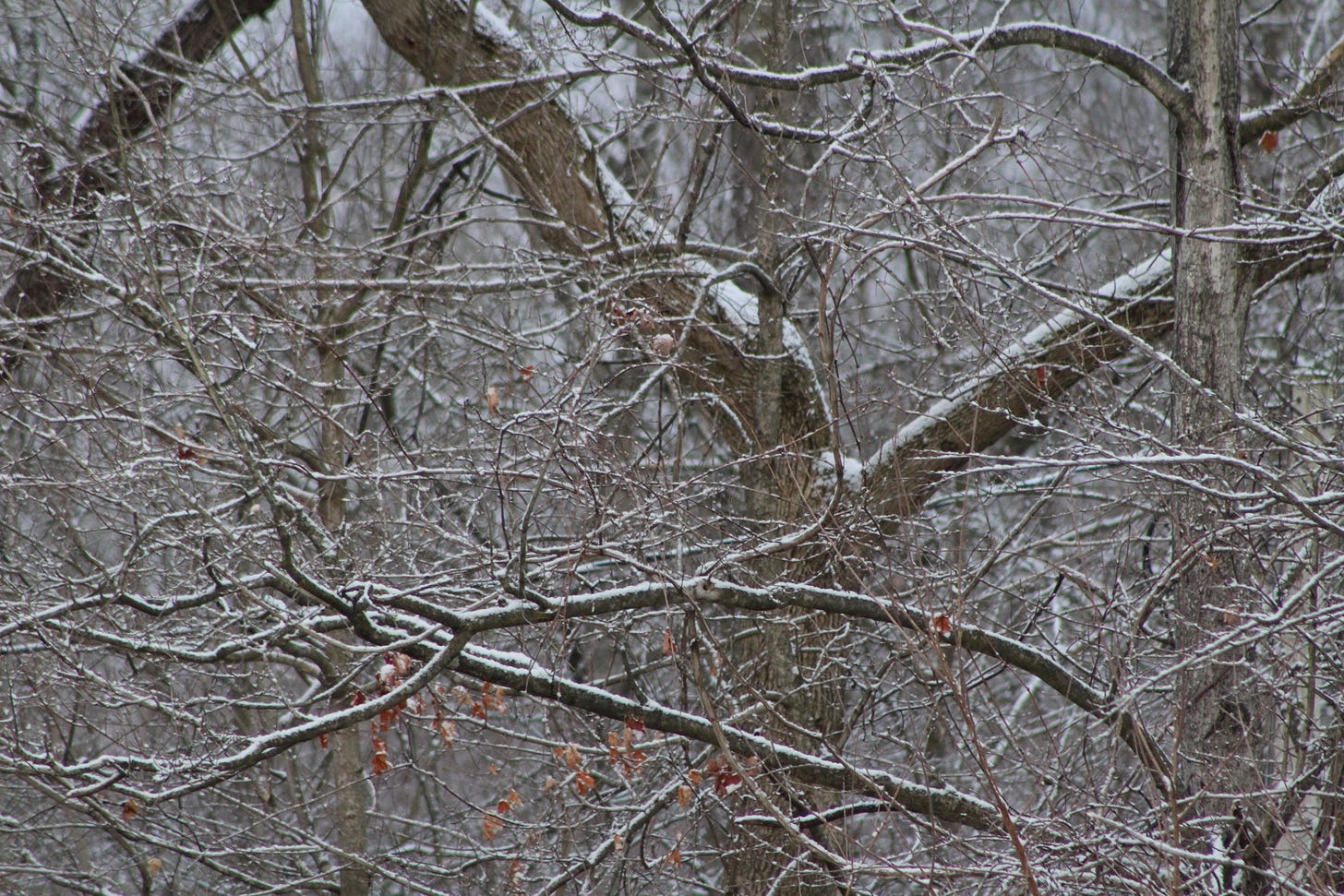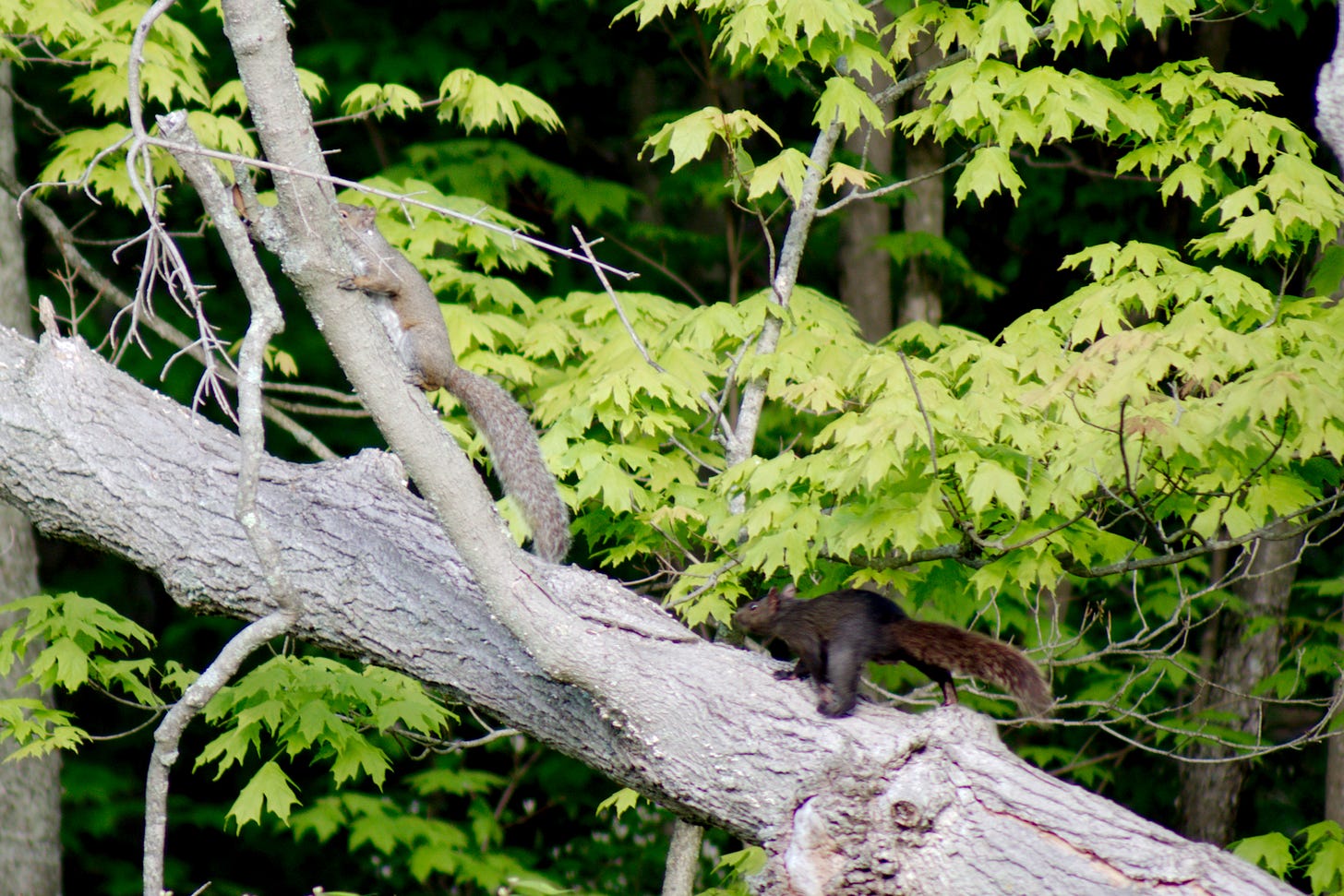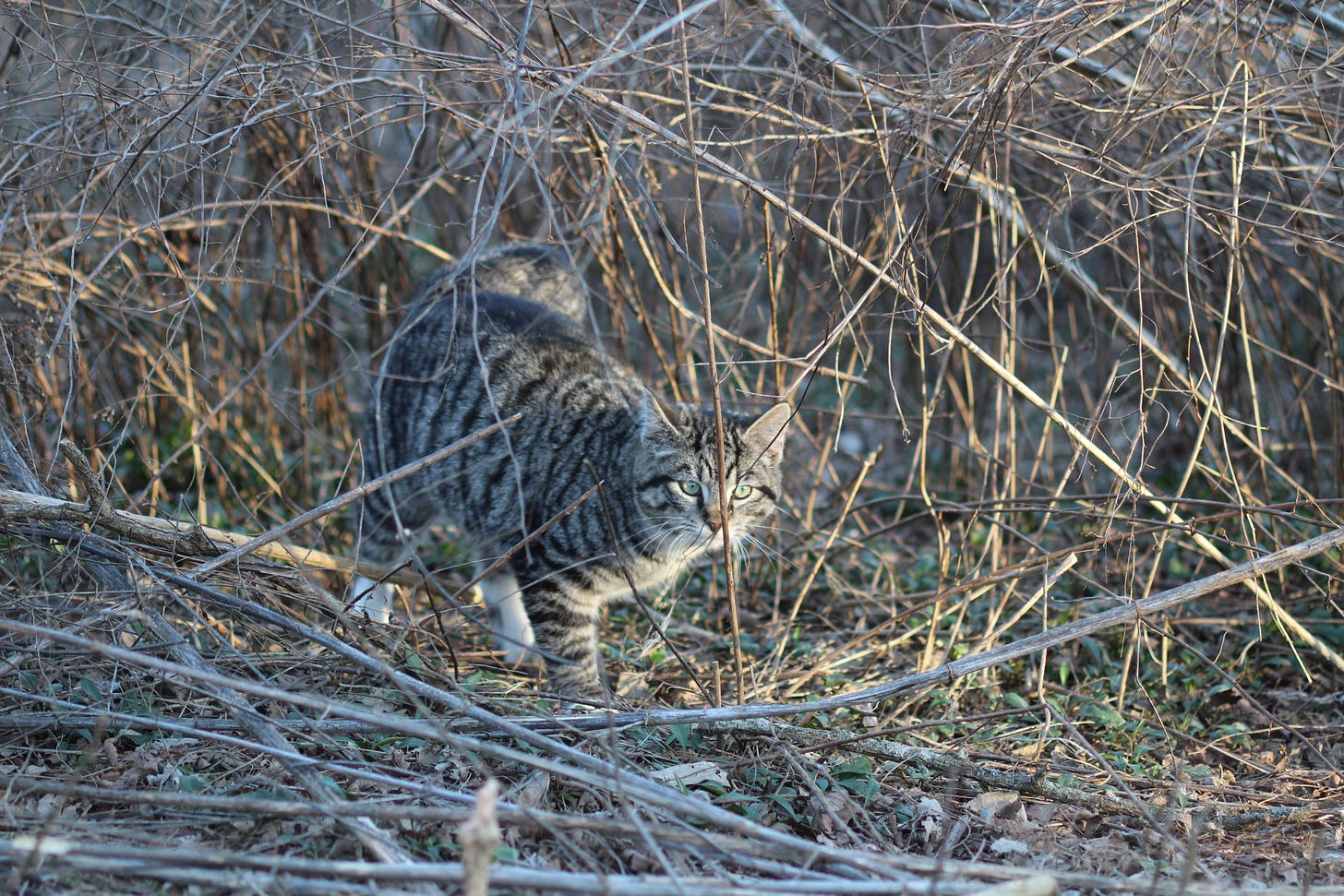This article was originally published at the Mad Genius Club on January 23, 2021.
No, this isn't about the survival of books, or writing, or even of the writer, although there are days! Instead, this post is taking off on something I'd been asked to touch on with my livestream chat (which you can watch here, although I suggest skipping the first few minutes as I was tired and rambly) and I'll be blogging about on my personal site. Survival: man versus nature.
It's been a while since I played at this seriously, and thank goodness, I've never been in a situation where I'd need all my skills to survive in the woods. But as a writer, I can tap into what I learned when I was a teen and it was a fun game, and since then as an adult who was interested in gathering wild edibles for the table.
I'll recap what I said in the video as I began the topic. If you got dropped into the winter woods, the ones I was hiking in yesterday, with what you had on you, life would suck, and then you'd die. Which is why most writers are careful, if they want to be realistic about it, to set their characters up with somewhat more ideal conditions. Because it's no fun for the reader to have the character lurching about through the frozen woods trying to figure out how to make fire, how to catch squirrels they are probably going to have to eat raw, before finally succumbing to exposure in surprisingly short order.
Let's give our Hero a shelter, and a means of making fire. We're being generous. If you crashed into the woods in your, say, let's do SF! in your flying saucer, and there was no civilization within walking distance, you might be able to use your wreckage to help you stay warm and dry. And you have some kind of way of starting a fire. Nice. Now... what? Do you have any idea what is edible, and what isn't? Let's posit you can eat the animals safely. Tasty, tasty meat. Mmm. Now what?
Well, as I talked about in the video, when I was wandering through the woods (Ok, I was moving rather briskly, it was quite cold, below freezing, and I wanted to stay warm) I was looking for green things. We've had a mild winter here, and there's no snow on the ground. So I knew I'd find something green. Even if it were covered in snow, you could dig down and find green things, waiting for spring to grow again. I found, on my short hike, green onions, chickweed, and violet leaves. All edible, all helpful in staving off such deficiencies as scurvy. Had I walked on a different trail, on the verges of a field, I'd have found wild strawberry leaves, which are high in Vitamin C and were once steeped into a tea that helped early settlers and natives stave off the scourge of scurvy, which wasn't just a thing that plagued pirates. There is a reason, gross as it sounds to our modern sensibilities, that the contents of an animal's stomach used to be eaten after a kill. The greens were lifesavers.
Man cannot live on meat alone. He needs green stuff, and he needs fat. Wild game is, generally speaking, very lean meat. One source of fats in the wild are nuts. I took a photo of a shagbark hickory while I was looking for forage on this hike. The chances of finding many nuts on the ground, this late in winter here, are slim. Squirrels, deer, insects... there is a lot of competition for nuts, because they are a magnificent food source. So let's make our character have the advantage of gathering nuts as they fall. What then? Has he got the ability to store them someplace dry (nuts will sprout! They are intended to grow trees, after all, not to be food) and most importantly, someplace only he can access? Mice, voles, and their vermin ilk can penetrate into the most unlikely places, as many a housewife through the centuries has discovered to her dismay. This is how we came to share domiciles with the cat, after all.
You begin to see the scope of the problem we have, then as a writer of survival. There are so many factors that can casually kill our Hero dead, or leave him crippled through nutritional deficiency, or... he's going to have to overcome many obstacles. Let's see, he isn't going to get enough nuts from the frozen forest floor, and although there are a few squirrels scuffing through the dry leaves, they aren't abundant enough... and how is he going to catch them? Have we given him a firearm? You can hunt deer without one, although I wouldn't recommend hand-to-hoof combat. He's likely to reel away from that slashed to ribbons by hooves and antlers. He might even make it back to his flying saucer home before collapsing and dying of blood loss or infection. No, he doesn't even need to be vulnerable to this planet's pathogens - he has enough of his own riding around with him that, once introduced to his bloodstream, can take him out.
So, what's a source of fat and protein that isn't speedy and clever, or armed with sharp pointy ends? Oh, look, rotten logs. Loaded with small, squishy edibles squirming slowly in the winter's cold. Our Hero is going to have to lose any squeamishness he might have had. Grubs and pupae will possibly keep him alive. Maybe.
Maybe I need to title this 'a thousand ways to die' and muse on how it's amazing any of us managed to be descended from intrepid settlers and explorers. Most of them, they had some help. You really have to go back far in history to the hunter-gatherers (and most of them stuck to areas with plenty of foodstuffs, and didn't usually stay in winter woods as they could move around). Isolated incidents of humans lost in the woods largely end tragically. Look at the number of missing persons in the national parks, for an example. There are some stories of survival, but they take a terrible toll, mostly.
Still it's an interesting thought exercise, and it starts to give you-the-writer new and weird ways to torment, er, plot your characters as they might not have any conflict with other characters at all. It's hard enough to stay alive in nature! Which won't care as it kills your Hero. Over and over. Poor sucker, he never had a chance.








The Secret of Our Success by Joseph Henrich is interesting.
He makes a point that explorers -- being a concentration of healthy men in the prime of life -- often die of hunger in environments that locals find particular good eating in.